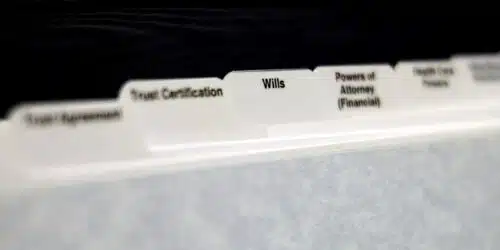In addition to testamentary gifts which are transferred through a testator’s Will, there are several ways that a deceased’s assets may pass or be transferred outside of their estate. These types of transfers are commonly referred to as “Will substitutes”. Will substitutes include assets that are held jointly with a right of survivorship, life insurance and registered plans with designated beneficiaries, and in some circumstances, gifts transferred by the deceased prior to their death. After confirming the legitimacy of the arrangement, the Estate Trustee should assist the new owner in finalizing the transfer.
In common-law jurisdictions, individuals who jointly own real property can hold those assets in one of two ways, either as tenants-in-common or as joint tenants. Individuals who jointly own assets as tenants-in-common each have a specified share of the title (i.e., 50/50 or 30/70, for example). Any income, gains or losses are split amongst the owners in accordance with their shares of ownership. When one joint owner dies, their share of the asset becomes a part of the estate. It does not pass outside. In contrast, when an owner of an asset held in joint tenancy with survivorship, the surviving owner becomes the legal and beneficial owner, and the asset passes outside of the estate. It is therefore not included as part of the estate of the deceased.
Typically, where a beneficiary is designated on a life insurance or registered plan, these assets pass outside of the estate.. It is important for the Estate Trustee to review the plan or designation to confirm that it meets the necessary requirements and clearly identifies the beneficiary. Where there is evidence that a beneficiary designation is invalid or has been revoked (whether in the policy or the Will), it is vital that the Estate Trustee notify the insurer or plan trustee of the issue.
Gifts made by the deceased in the year prior to their death should also be contemplated by the Estate Trustee. Certain gifts made by the deceased in the year before the date of their death may have specific tax implications that the Estate Trustee should consider. For example, where the gift constituted property or an investment, there may be a deemed disposition or gain that must be reported on the final tax return. In addition, the Estate Trustee should make him or herself aware of any suspicious gifts made in the final year before death, including large transfers in the period leading up to death or unexplained transfers of ownership while the deceased was deemed or believed to be incapable. These may be ‘red flag’ indications of fraudulent or improper transactions.






